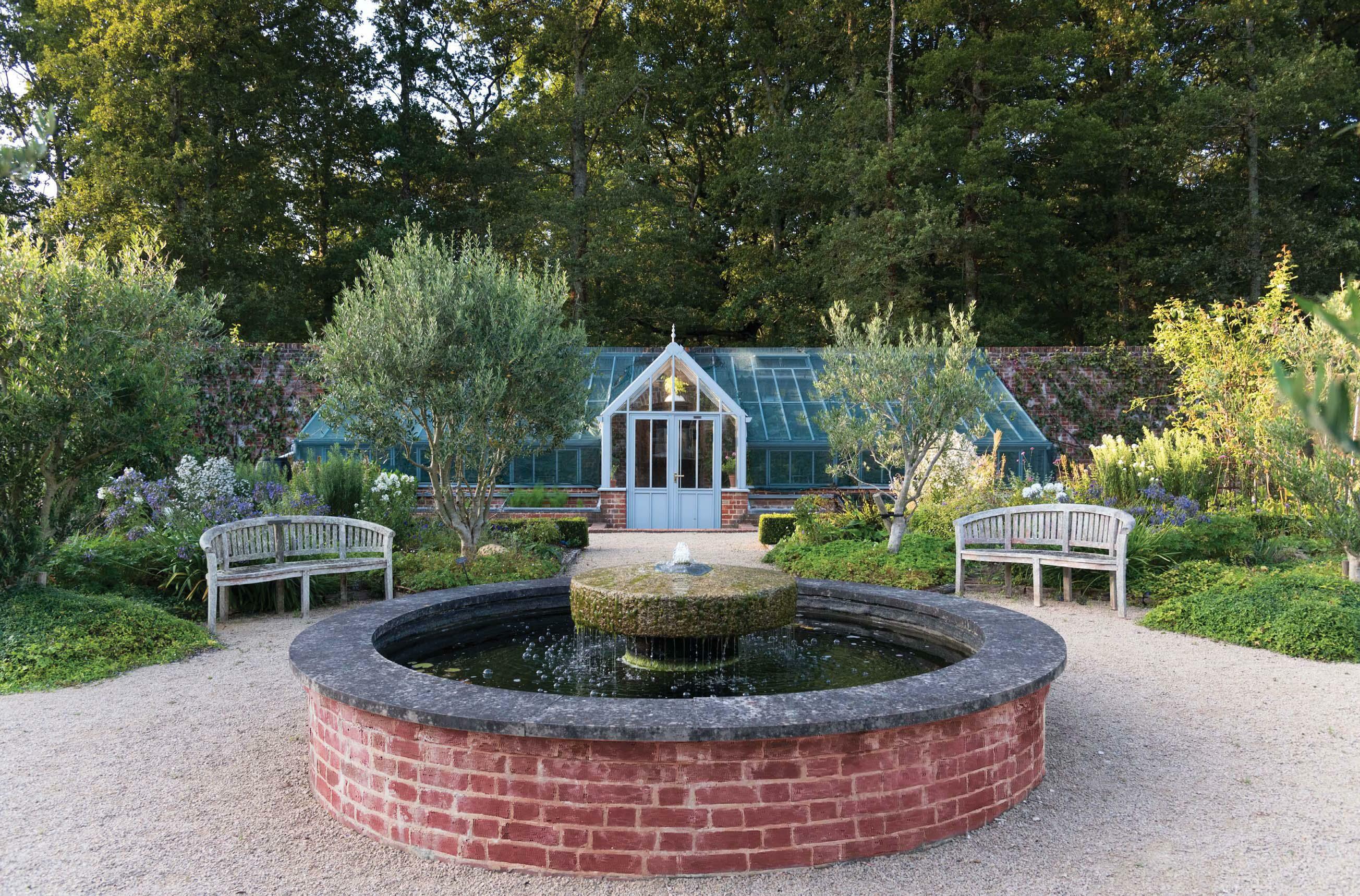
VIRTUALLY every cottage and country house in Great Britain and Ireland once had its own kitchen garden,’ wrote the late kitchen-garden historian Susan Campbell in the introduction to her book Walled Kitchen Gardens (Shire, 1998). She went on to chart their demise after the Second World War, when productive gardens of all sizes fell into swift and permanent decline. The reasons were clear: labour costs had soared and cheap imports of fruit and vegetables from around the world made the hard slog of growing your own not really worth the candle.
In the past few decades, all has changed again. We want to know both where our food is coming from and how our fruit and vegetables are grown—are they fresh and locally sourced, what about regular exposure to chemicals? To that end, old plots have been dug again and many walled gardens—their glasshouses broken and all signs of paths long since hidden by grass—have been restored. At Whithurst Park, however, Richard Taylor and his partner, Rick Englert, have gone one further and built a new walled garden from scratch.
They do have form: their magnificent Jacobean-style manor, complete with pavilion towers and faced with locally made red bricks, was designed by their great friend Kit Rae-Scott and completed in 2004.
By 2006, Mr Englert, a designer who was born in Texas in the US, had identified a suitable site for a walled garden on the north side of the house, where there was an area of scrubland and saplings leading to dense woodland, in which lies a lake. About 20 small trees were cleared by Henry Nicholls —a nice touch, as it was his great-grandfather who had once owned Whithurst and had planted the many Monterey pines (Pinus radiatus) that surround the property.
Denne historien er fra January 24, 2024-utgaven av Country Life UK.
Start din 7-dagers gratis prøveperiode på Magzter GOLD for å få tilgang til tusenvis av utvalgte premiumhistorier og 9000+ magasiner og aviser.
Allerede abonnent ? Logg på
Denne historien er fra January 24, 2024-utgaven av Country Life UK.
Start din 7-dagers gratis prøveperiode på Magzter GOLD for å få tilgang til tusenvis av utvalgte premiumhistorier og 9000+ magasiner og aviser.
Allerede abonnent? Logg på

Give it some stick
Galloping through the imagination, competitive hobby-horsing is a gymnastic sport on the rise in Britain, discovers Sybilla Hart

Paper escapes
Steven King selects his best travel books of 2024

For love, not money
This year may have marked the end of brag-art’, bought merely to show off one’s wealth. It’s time for a return to looking for connoisseurship, beauty and taste

Mary I: more bruised than bloody
Cast as a sanguinary tyrant, our first Queen Regnant may not deserve her brutal reputation, believes Geoffrey Munn

A love supreme
Art brought together 19th-century Norwich couple Joseph and Emily Stannard, who shared a passion for painting, but their destiny would be dramatically different

Private views
One of the best ways-often the only way-to visit the finest privately owned gardens in the country is by joining an exclusive tour. Non Morris does exactly that

Shhhhhh...
THERE is great delight to be had poring over the front pages of COUNTRY LIFE each week, dreaming of what life would be like in a Scottish castle (so reasonably priced, but do bear in mind the midges) or a townhouse in London’s Eaton Square (worth a king’s ransom, but, oh dear, the traffic) or perhaps that cottage in the Cotswolds (if you don’t mind standing next to Hollywood A-listers in the queue at Daylesford). The estate agent’s particulars will give you details of acreage, proximity to schools and railway stations, but never—no, never—an indication of noise levels.

Mission impossible
Rubble and ruin were all that remained of the early-19th-century Villa Frere and its gardens, planted by the English diplomat John Hookham Frere, until a group of dedicated volunteers came to its rescue. Josephine Tyndale-Biscoe tells the story

When a perfect storm hits
Weather, wars, elections and financial uncertainty all conspired against high-end house sales this year, but there were still some spectacular deals

Give the dog a bone
Man's best friend still needs to eat like its Lupus forebears, believes Jonathan Self, when it's not guarding food, greeting us or destroying our upholstery, of course